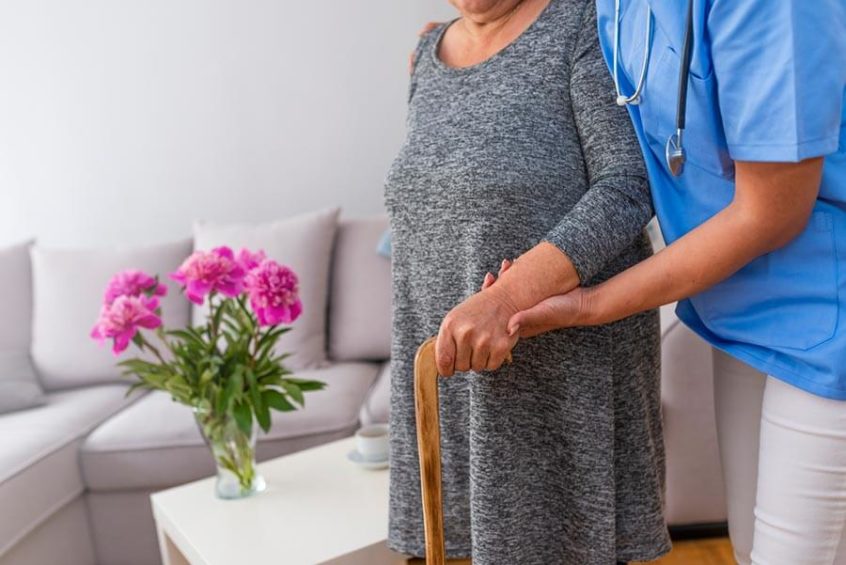A Rising Need for Quality Nursing Homes
A seismic shift in our nation’s population is occurring and Utah is no different. We have an aging population. According to a 2018 U.S. Census Bureau report, in 2035 “there will be 78.0 million people 65 years and older compared to 76.4 million under the age of 18.” Let’s explain this another way; the elderly population will outnumber children for the first time in our nation’s history. This represents a massive demographic shift that poses a unique set of public health challenges.
And quality, competent nursing homes are a large part of this challenge.
More individuals are spending time in a nursing home, and it is important that the public be aware of the rights of a nursing home resident.
1987 Nursing Home Reform Act
The 1987 Nursing Home Reform Act (“NHRA”), part of the Omnibus Budget Reconciliation Act of 1987 (“OBRA”), requires each nursing home to care for its residents in a manner that promotes and enhances the quality of life of each resident, ensuring dignity, choice, and self-determination.
This means a resident should not decline in health or well-being as a result of the way a nursing facility provides care.
The general goals of OBRA are to:
(a) promote and enhance the quality of life of the resident;
(b) provide services and activities to attain or maintain the highest practicable, physical, mental and psycho social well being of each resident in accordance with a written plan of care;
(c) provide that resident and advocate participation is a criteria for assessing the facilities compliance with administrator requirements; and
(d) assure access to the Utah’s Long Term Care Ombudsman (a 3rd party resident advocate) to the facilities residents, and assure that the Ombudsman has access to records, residents and care providers.
Nursing Home Resident’s Bill of Rights
The goals are implemented by NHRA establishing the Resident’s Bill of Rights:
- The right to freedom from abuse, mistreatment, and neglect;
- The right to freedom from physical restraints;
- The right to privacy;
- The right to accommodation of medical, physical, psychological, and social needs;
- The right to participate in resident and family groups;
- The right to be treated with dignity;
- The right to exercise self-determination;
- The right to communicate freely;
- The right to participate in the review of one’s care plan, and to be fully informed in advance about any changes in care, treatment, or change of status in the facility; and
- The right to voice grievances without the discrimination or reprisal.
A copy of the Bill of Rights must be conspicuously posted in the lobby of the facility. These rights may be given in general terms, however, NHRA specifically defines the parameters of each right. Here’s an example: relative to medication, NHRA proscribes that a resident be free of unnecessary physical or chemical restraints, including anti-psychotic drugs and sedatives, except when authorized by a physician for a specified and limited period of time.
Additionally, the NHRA specifically states:
(a) facilities inform the resident of the name, specialty and means of contacting the physicians responsible for the resident’s care;
(b) facilities must inform the resident, his or her guardian or interested family member of any deterioration of the resident’s health or if the physician wishes to change treatment;
(c) facilities must provide the resident access to his or her medical records within one business day, and a right to copies of the records at a reasonable cost;
(d) facilities must provide a written description of a resident’s rights, explaining state laws relevant to living wills, durable powers of attorney, etc., along with a copy of the facilities policy on carrying out these directives. This becomes particularly important when a facility refuses to honor the residents advance directive relevant to end-of-life decisions, the use of feeding tubes, ventilators and respirators;
(e) the resident has a right to privacy, which extends to all aspects of care; and
(f) a resident may not be moved to a different room, different nursing home, a hospital or back home without advanced notice, and an opportunity for appeal.
Be Aware of Warning Signs
Being familiar with OBRA and NHRA will provide the practitioner with a better awareness of protocols for the following relevant areas:
- Abuse, including unnecessary or excessive restraints.
- Pressure sores, infections, falls and fractures.
- Adverse drug reactions and over-medication.
- Nutrition, hydration, and unintended weight loss.
- Dining and Food Service.
- Sufficiency of staff, including nursing.
- Rehabilitative care, including physical therapy and speech therapy.
As our parents and grandparents come of age it is inevitable that a significant number of them will spend some time in a nursing home. Knowledge of their rights will be of critical importance for their lawyers, families and friends. A nursing home abuse attorney can help you ensure your loved ones rights are met.
Carlson Injury Law can help
If you have any concerns about nursing home abuse in Utah or about the way your loved one is being treated in a nursing home or long-term care facility, don’t hesitate to call Carlson Injury Law for a free consultation. Call (801) 845-4577 or use our secure online form here.


